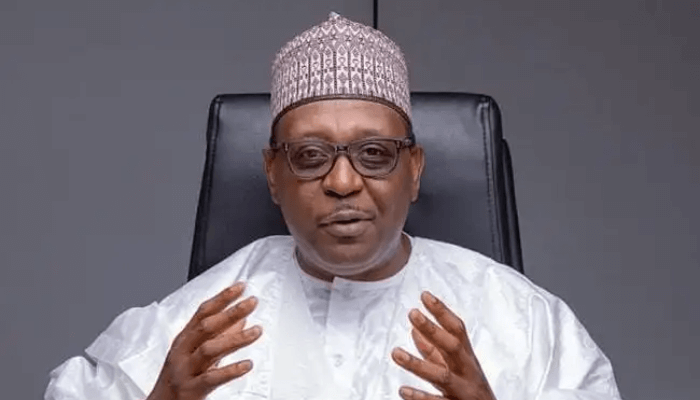Mohammed Ali Pate, Nigeria’s coordinating minister of Health and Social Welfare
…Edun tasks states to invest in health as fiscal allocation increases
The federal government has announced plans for a Medical Relief Programme and an expanded social health protection aimed at easing the cost of healthcare for Nigerians.
Muhammad Pate, coordinating minister of health and social welfare who announced this Wednesday during the Joint Annual Review Conference 2025, said the decision was informed by a citizen perception surveys conducted which gathered feedback from thousands of Nigerians on the health system’s performance.
“The findings are encouraging. The proportion of citizens who believe that government considers their views in health decision-making now stands at nearly half the population. However, citizens have clearly indicated that affordability remains a major concern. Access to services is improving, but affordability must improve further”, Pate said.
“I am pleased to note that, through the commitment of the Ministers of Finance and Budget, plans such as the Medical Relief Programme and expanded social health protection are underway to ease these pressures”, he added.
The minister explained that, with the support of the Ministers of Finance and Budget, the Medical Relief Programme and expanded social health protection measures are being rolled out to address these challenges.
Read also: More than half of Nigerians lack access to affordable, quality healthcare — Report
Speaking at the Nigeria Health Sector-Wide Joint Annual Review 2025, the minister highlighted progress in health insurance coverage, which has risen from about 6–7 percent two years ago to 12 percent today attributed to the implementation of mandatory health insurance and the Vulnerable Groups Fund.
Across reproductive, maternal, newborn and child health and primary health care indicators, Pate said data shows consistent progress and expansion of service utilization throughout 2025.
“According to quality-adjusted DHIS-2 data, the percentage of deliveries attended by skilled birth attendants now exceeds 90 percent, a remarkable improvement given where we began”, he added.
“Data shows antenatal care coverage at 39 percent in 2023, while survey data recorded 52 percent. For 2024 and 2025, coverage levels have exceeded 50 percent in both years, showing that more women are attending antenatal clinics”, the minister further said.
Wale Edun, minister of finance and coordinating minister of the economy, reiterated government’s commitment to securing funding for the health sector.
Edun revealed that the government is actively working to raise nearly $150 billion to cover vaccine procurement for the years 2025 and 2026.
The minister however acknowledged that while the budgetary appropriation for health has increased, the government faces ongoing challenges in ensuring that funds are fully released and utilized efficiently.
“The appropriation is there. But the real challenge is closing the gap between budgeted funds and actual releases. We are committed to ensuring that health funding is fully operationalized and spent effectively”, Edun said.
The Minister further expressed concerns over states suboptimal investment in health despite increased fiscal allocation.
“States must recognize that more resources have been allocated to them, and they need to prioritise these critical sectors to ensure equitable development,” he said.
Edun emphasised the importance of domestic resource mobilisation to sustain the growth of Nigeria’s health sector.









